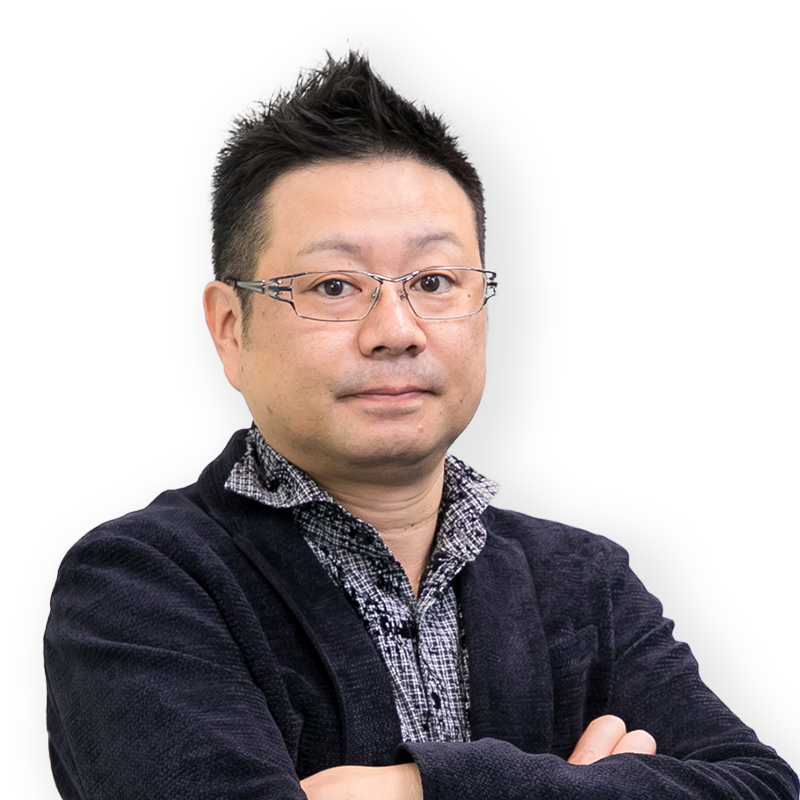【 Interview Movie 】
Bringing SEGA's games to a global audience through localization
I work as the localize director for the global version of "Phantasy Star Online 2 New Genesis (PSO2: NGS)". The objective of localization is to translate and adapt games into other languages so that players who may not comprehend the source language can understand and enjoy them. Though localization primarily deals with the translation of the text, it can sometimes involve tweaking the design of the UI as well.
As the localize director, I do some translation from time to time, but we usually outsource the majority of it to a translation vendor. Mostly, I oversee the translation work, manage schedules, monitor the quality, and handle requests from other departments.
One of the biggest issues when translating to English is the length. For instance, "weapon" is a two-character word in Japanese. Usually the screen only offers enough space for the Japanese, so to translate that two-character word into "weapon" means that it will end up hanging outside the window where it's meant to appear. A part of my job involves identifying such issues and communicating them to the development team so that we can have enough space for localization and avoid potential problems like this. It's natural for people to make mistakes, so sometimes line breaks can be put in the wrong place, or there can be spelling errors left in the translation. To prevent these kinds of problems, we make sure to playtest the game and also hire a playtesting company to play through the game to iron out any issues and ensure the best possible quality.
The global version of "PSO2: NGS" was released alongside the Japanese version in June 2021. I was thrilled to see the glowing response from English players over YouTube and various online platforms. It really served as a reminder that our mission is to deliver SEGA's games in the best-possible condition to its fans across the world.
Transcending language barriers to provide players with an unforgettable gaming experience
Localization is more than just simply translating text so that it is understandable to a foreign audience; it requires us to curate the language in a way that it will leave a lasting impression on the player.
For example, in Japanese, there's a dialect called Kansai-ben, which is particular to the people of Osaka. So if a character speaks in this dialect, there's a lot of things that you'll automatically know about that character without having to explain it to an audience. Of course, we can give the person an accent in English, but it won't necessarily mean the same thing that it does in Japanese. So we have to find a way to give that character the same sort of nuance without giving them an accent that just comes out of nowhere.

Japanese also uses a lot of different honorifics which English doesn't quite have the same amount of or the same nuance for. So again, if a character is using certain honorifics for different characters and at different times, there's a lot of information that's being told naturally there, but we don't have the same mechanisms in English, so we have to think of other ways to work around it. Those are some of the challenges of localization, but also what make it so immensely rewarding. Trying to convey what makes a game fun and the developers' message behind it can be extremely challenging, but that's also part of the fun of the job.
SEGA is a place that offers countless possibilities
I work in the 3rd Overseas Support Division where there are a lot of foreign staff members. One of SEGA's best qualities is how inclusive it is in supporting the growth and principles of its staff. SEGA offers everyone the opportunity to stretch beyond their assigned duties and challenge themselves to accomplish more. I'm genuinely thrilled by the company's dedication to nurturing the potential of its employees and cultivating an atmosphere that allows us to maximize our capabilities. We have an open-door policy where our bosses are always willing to hear our ideas or give us advice.

While being part of the Localization Team is incredibly rewarding, I'd love to be more actively involved with the development team in the future. I'm very excited by the prospect of designing a game that combines the best of America and Japan.
I studied Japanese in university and fell in love with the culture. After graduating, I came to Japan as an English teacher, but I'd always wanted to work in gaming since I was young.
If you enjoy video games, it might seem a far-off dream to join a video game company. But it's a great opportunity to not just play the games but be involved in them. If you're interested in working in gaming, please consider applying at SEGA. I'll be wishing for your success!
10:00 AM Work day begins with me checking my emails and updating data.
10:10 AM Daily meeting with the Localization Team: We let everyone know about our tasks for the day and any other relevant info. If working from home, we try to make time to socialize.
11:00 AM Weekly meeting with the entire Localization Team: We report on our progress for the week and share any other relevant info. Directors based overseas also attend the meeting.
12:00 PM Break for lunch
1:00 PM Daily meeting within department.
2:00 PM Regular duties: Prep localization for Phantasy Star Online 2 New Genesis, manage schedules, and check bug reports, making the necessary fixes and submitting a final report to the development team.
7:00 PM Work day ends. (Depending on the day, we may send out notifications to overseas users or carry out server maintenance.)

STAFF INTERVIEWS



























